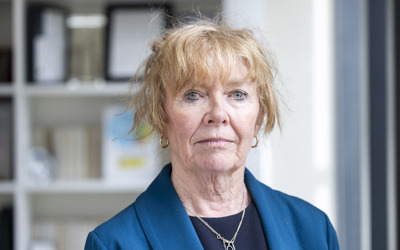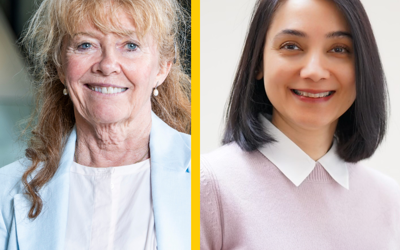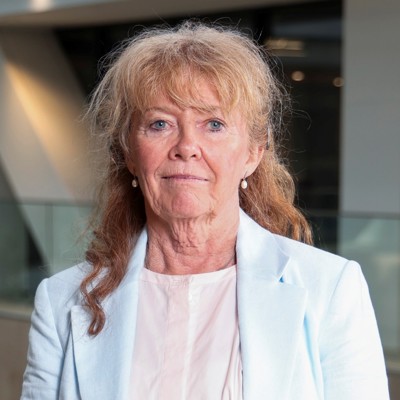Civil Aid Inquiry: the conversation continues
Pat Thom is the President of the Law Society of Scotland.
On 20 and 27 May, the Equalities, Human Rights and Civil Justice Committee met to listen to oral evidence from a variety of stakeholders on their Civil Legal Aid Inquiry.
This followed on from my oral evidence session on 13 May – the first in a series of three on this important subject. My own experience was one of synergy. When giving evidence alongside the Scottish Association of Legal Centres (SALC), we presented a united voice on the key issues affecting legal aid solicitors, and shared concerns over the retirement cliff edge, legal aid deserts, low commercial viability and other issues.
After providing the Committee with a view from legal aid service providers, and given the importance of this issue to the Law Society of Scotland, we watched the next two sessions closely. Below is an overview of my take on proceedings.
There was a familiarity when observing the second session - despite the diversity of the organisations giving oral evidence, there were reiterations in the concerns for the system - present and future. Indeed, in both panels' sessions – where participants were primarily groups that provide advice and support for legal aid clients - Committee MSPs heard many views in the form of data and anecdotal evidence. Day-to-day, these organisations provide advice and support for women, asylum seekers, children and young people, and more.
The four bodies of the first panel clearly had a lot to say, and this is best illustrated by the fact that half of their session was used to answer the first question: “What specific clients do you represent and what specific barriers do you see to their accessing civil legal aid assistance?”.
What was made clear by both panels was that the concerns we raised in our written submission, and in oral evidence, are shared across the board.
Specifically, our concerns over increased demands on the sector and legal aid deserts were reiterated, as was our call for early reform.
Session three, 27 May: Legal Aid provision decision makers
The final session of oral evidence took place on 27 May, with two panels comprising representatives from the Scottish Legal Aid Board (SLAB), and the Minister for Victims and Community Safety.
Committee MSPs had clearly listened closely to the previous two sessions, as they asked some pressing questions of SLAB and the Minister that had clearly arisen from evidence that had been heard.
Both admitted there are challenges across the board that need tackled, but their view is that there is a need for regulations and legislation to fix many of the issues. Primary legislation was mentioned in the Scottish Government’s Discussion Paper on Legal Aid, but it is unlikely to be drafted in this Parliamentary session i.e. autumn 2026 at the earliest. Furthermore, the Minister stated that whilst they are working on draft statutory instruments to make initial changes to the judicare system, they won’t be tabled until “after the summer at the moment."
From my perspective, the Minister is very cognisant of the issues, and I believe there is a desire to fix them through extensive engagement. Naturally, we stand ready to work with the Minister and the Justice Directorate to ensure any changes are pragmatic and impactful.
Over to Committee
The evidence gathering stage of the Inquiry is now complete, and it is now up to the Committee to report back. This is a timely inquiry on a key issue that has been in difficulty for some time.
I hope the forthcoming report really kick starts the programme of reform required to make the civil legal aid sector in Scotland sustainable, an attractive area of legal practice to work in, and ensure access to justice for those who need it most.
You can watch the evidence session on 20 May and 27 May on the Scottish Parliament website.

Holyrood inquiry warned of looming ‘cliff edge’ for civil legal aid

Civil Aid Inquiry: A much needed conversation
Pat Thom, Co-Convener of our Legal Aid Committee and Vice President of the Law Society of Scotland, reflects on her experience of giving evidence to the Scottish Parliament’s Equalities, Human Rights and Civil Justice Committee’s Inquiry on Civil Legal Aid and the implications of this important and much needed discussion.

Joint letter calls for urgent increase in Scottish legal aid fees
The Law Society of Scotland and the Scottish Association of Law Centres have jointly written to a parliamentary committee examining civil legal aid provision in Scotland to emphasise the urgent need for an increase in legal aid fees.

Support our Legal Aid Matters campaign
Find out about legal aid in Scotland, the types of situations where an individual may be eligible to receive legal aid and support our Legal Aid campaign.

